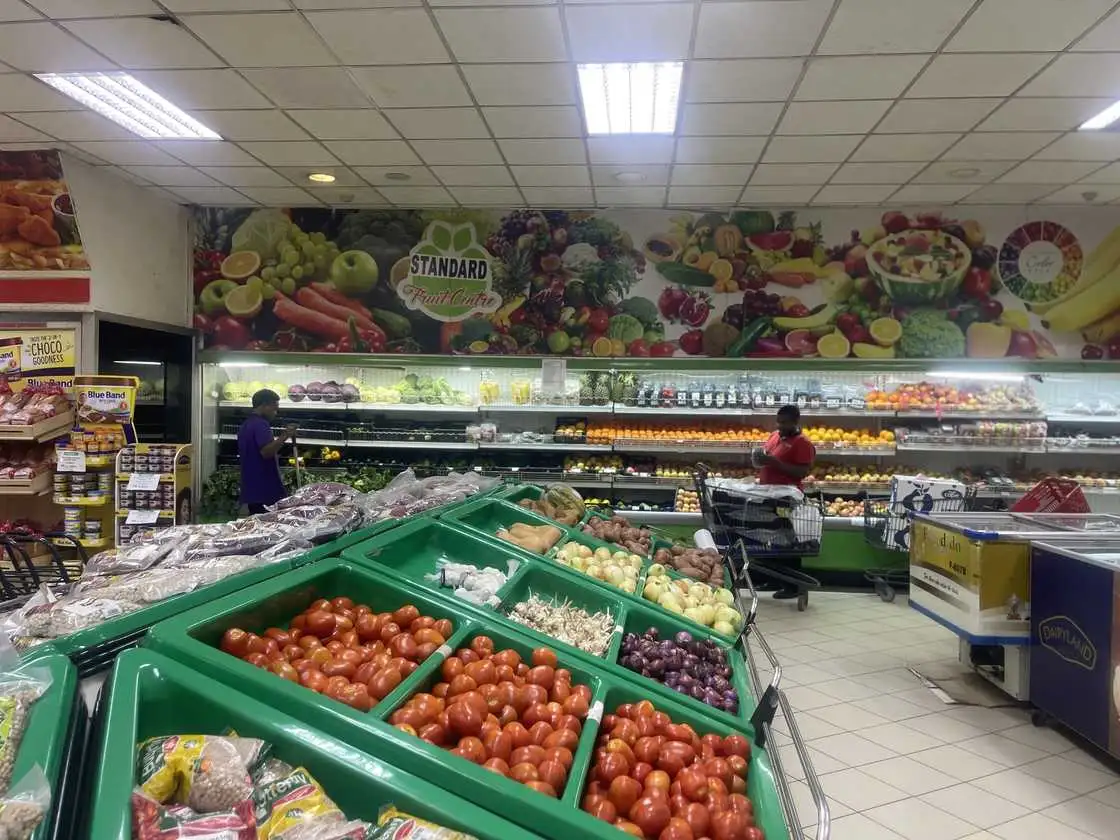Ghana may soon pivot to sourcing petroleum products from Nigeria’s Dangote Oil Refinery, as the facility nears full operational capacity. This shift could significantly impact Ghana’s energy landscape, helping to reduce the nation’s $400 million monthly fuel import bill and enhancing economic collaboration within West Africa. This potential development was revealed by Mustapha Abdul-Hamid, Chairman of Ghana’s National Petroleum Authority (NPA), during the OTL Africa Downstream Oil Conference held in Lagos, Nigeria.
Economic Rationale and Cost-Saving Potential
According to Abdul-Hamid, sourcing fuel directly from Nigeria offers considerable cost-saving benefits for Ghana, mainly by reducing the transportation costs associated with importing fuel from Europe. Currently, Ghana imports a substantial portion of its petroleum products from refineries in Rotterdam and other parts of Europe. These imports come with high freight costs and are subject to price volatility due to international market dynamics. Importing from the Dangote Refinery, located much closer to Ghana, would substantially reduce these expenses and offer more price stability, given the refinery’s proximity and the potential to negotiate regional trade terms.
The reliance on European imports has been increasingly burdensome for Ghana, especially as global fuel prices have experienced upward pressure. With Ghana’s economic growth leading to a heightened demand for affordable energy sources, the option to import fuel from a nearby African nation presents a solution that is economically feasible and logistically efficient.
Impact on Ghana’s Fuel Import Expenses
The potential shift is part of Ghana’s strategy to manage its fuel import costs amid fiscal challenges and a growing demand for energy. Abdul-Hamid highlighted the possibility of using regional partnerships to stabilize Ghana’s economy, explaining that if Dangote’s refinery reaches its projected full capacity of 650,000 barrels per day (bpd), the refinery will produce far more fuel than Nigeria requires domestically. “Instead of importing from Rotterdam, it will be easier for us to import from Nigeria, which could reduce fuel prices significantly,” he stated.
The Dangote Refinery’s output is expected to cover a large portion of West Africa’s fuel needs, offering countries like Ghana a reliable alternative to the international markets. Ghana’s annual fuel demand is expected to continue climbing, driven by population growth and increased industrial activity. The local production capacity offered by Nigeria’s refinery aligns well with Ghana’s goal of reducing dependency on foreign imports and cutting costs, a crucial factor given the impact of high import costs on Ghana’s inflation rates.
The Dangote Refinery: A New Powerhouse in African Oil and Gas
The Dangote Oil Refinery, located in the Lekki Free Trade Zone in Lagos, is one of Africa’s most ambitious private-sector investments. The $19 billion project began supplying Premium Motor Spirit (PMS), commonly known as petrol, to the Nigerian market on September 15, 2024. The refinery’s capacity to process up to 650,000 barrels per day makes it the largest single-train refinery in the world. Once fully operational by early 2025, the facility will not only supply Nigeria’s domestic market but will also serve neighboring countries seeking to diversify their fuel sources.
The refinery is part of a broader economic vision that includes creating a self-sustaining energy supply chain in West Africa. For Nigeria, the benefits extend beyond increased fuel supply; it enables the country to shift from being a net importer of refined petroleum products to an exporter, strengthening its regional influence in energy. For countries like Ghana, which face high fuel import costs, this new supply option is anticipated to improve trade efficiencies and reduce the cost burden on consumers.
Regional Economic Integration and Potential for an African Currency
Beyond the immediate cost savings, Abdul-Hamid noted that a unified African market for fuel products could reduce reliance on the U.S. dollar, a currency often required in international oil transactions. This reliance creates additional financial strain on African economies by exposing them to exchange rate fluctuations and making them vulnerable to external economic shocks.
The possibility of a shared African currency, which has been discussed for years by African Union member states, could further simplify transactions between countries like Ghana and Nigeria. A regional currency would also allow both nations to bypass the need for dollar reserves, which can be challenging to maintain, especially during periods of high inflation or currency devaluation. For Ghana, which has been dealing with a depreciating currency and high inflation, this could provide much-needed economic relief.
Such a currency would be especially beneficial in the energy sector, where transactions are often substantial and cross-border trade in oil and gas is essential for regional economies. Though the timeline for an African currency remains uncertain, discussions around this concept indicate a shift toward economic self-sufficiency and resilience.
Challenges Facing the Shift to Nigerian Petroleum Imports
While the potential partnership with the Dangote Refinery is promising, Ghana may face challenges in aligning this vision with regulatory and logistical requirements. Ghana has stringent fuel quality and safety standards, which must be met by all imported petroleum products. It will require Ghana’s NPA to work closely with Nigerian authorities and the Dangote Group to ensure compliance with these standards. Additionally, establishing stable supply chains between the refinery and Ghana will be critical to prevent potential disruptions that could impact Ghanaian fuel markets.
There are also infrastructural factors to consider. Shipping routes and storage facilities must be optimized to handle the increased volume of imports from Nigeria. Collaborative efforts may involve Ghana upgrading or expanding its port facilities and fuel storage depots, especially as demand grows. Additionally, implementing a stable pipeline or reliable transport agreements could mitigate risks associated with potential logistical disruptions, such as geopolitical instability in the region.
The Role of Regional Trade Policies in Fuel Imports
The African Continental Free Trade Area (AfCFTA) could play an instrumental role in facilitating Ghana’s shift toward importing from the Dangote Refinery. Launched in 2021, AfCFTA seeks to eliminate trade barriers between African nations and increase intra-African trade. Fuel imports from Nigeria to Ghana would benefit from reduced tariffs and streamlined customs procedures under the agreement, further lowering import costs and making the trade route more efficient.
The AfCFTA framework also supports African countries in diversifying trade relationships within the continent, thereby reducing dependency on external markets. Given that both Ghana and Nigeria are members, the trade agreement could offer regulatory backing to streamline fuel trade agreements and pave the way for smoother transactions.
Dangote Refinery’s Contribution to Sustainable Development in West Africa
Besides economic gains, the Dangote Refinery’s operations could indirectly support sustainable development goals within West Africa. As the refinery becomes operational, it has the potential to generate employment, stimulate investment in energy infrastructure, and contribute to the development of human capital in Nigeria and neighboring countries. In addition, the refinery’s production capabilities can contribute to energy security for West African nations, making energy access more stable and affordable.
Moreover, West Africa’s push for renewable energy and sustainable practices could be indirectly aided by the Dangote Refinery’s efficiency in oil production, which could reduce dependency on less efficient refineries or imports from distant markets. This reduced dependency would decrease the carbon footprint associated with fuel imports, aligning with Ghana and Nigeria’s commitments to sustainability.
Future Prospects and Regional Impact
As Africa’s largest economy, Nigeria’s ability to supply fuel to neighboring countries could reshape the regional energy landscape. Should other West African nations follow Ghana’s lead, the Dangote Refinery could emerge as a central hub for fuel distribution across the continent. This potential transition highlights the significance of private-sector initiatives in addressing Africa’s infrastructural and economic challenges, emphasizing the role of strategic investments like the Dangote Refinery.
For Ghana, relying on Nigeria for fuel imports represents a pivotal shift toward strengthening intra-African trade and reducing dependency on global markets. If successful, this partnership could provide a model for other African countries seeking to diversify their energy sources and enhance economic resilience through regional trade.
Conclusion
Ghana’s interest in sourcing petroleum from Nigeria’s Dangote Refinery underscores the economic and strategic importance of fostering strong intra-African trade relationships. As the Dangote facility approaches full capacity, it presents a transformative opportunity for West Africa to reduce dependency on external fuel markets, lower import costs, and enhance economic stability across the region. While challenges remain, the anticipated benefits from reduced freight costs, a streamlined supply chain, and potential currency innovations position this partnership as a landmark development for both nations.
In a world where energy access is essential for economic growth and stability, Ghana’s move to source fuel from Nigeria marks a step toward regional self-reliance and strengthens Africa’s vision for a united, self-sustaining economic future.
Ready to take your career to the next level? Join our dynamic courses: ACCA, HESI A2, and ATI TEAS 7! 🌟 Dive into a world of opportunities and empower yourself for success. Explore more at Serrari Ed and start your exciting journey today! ✨
Photo source: Google
By: Montel Kamau
Serrari Financial Analyst
30th October, 2024
Article, Financial and News Disclaimer
The Value of a Financial Advisor
While this article offers valuable insights, it is essential to recognize that personal finance can be highly complex and unique to each individual. A financial advisor provides professional expertise and personalized guidance to help you make well-informed decisions tailored to your specific circumstances and goals.
Beyond offering knowledge, a financial advisor serves as a trusted partner to help you stay disciplined, avoid common pitfalls, and remain focused on your long-term objectives. Their perspective and experience can complement your own efforts, enhancing your financial well-being and ensuring a more confident approach to managing your finances.
Disclaimer: This article is for informational purposes only and does not constitute financial advice. Readers are encouraged to consult a licensed financial advisor to obtain guidance specific to their financial situation.
Article and News Disclaimer
The information provided on www.serrarigroup.com is for general informational purposes only. While we strive to keep the information up to date and accurate, we make no representations or warranties of any kind, express or implied, about the completeness, accuracy, reliability, suitability, or availability with respect to the website or the information, products, services, or related graphics contained on the website for any purpose. Any reliance you place on such information is therefore strictly at your own risk.
www.serrarigroup.com is not responsible for any errors or omissions, or for the results obtained from the use of this information. All information on the website is provided on an as-is basis, with no guarantee of completeness, accuracy, timeliness, or of the results obtained from the use of this information, and without warranty of any kind, express or implied, including but not limited to warranties of performance, merchantability, and fitness for a particular purpose.
In no event will www.serrarigroup.com be liable to you or anyone else for any decision made or action taken in reliance on the information provided on the website or for any consequential, special, or similar damages, even if advised of the possibility of such damages.
The articles, news, and information presented on www.serrarigroup.com reflect the opinions of the respective authors and contributors and do not necessarily represent the views of the website or its management. Any views or opinions expressed are solely those of the individual authors and do not represent the website's views or opinions as a whole.
The content on www.serrarigroup.com may include links to external websites, which are provided for convenience and informational purposes only. We have no control over the nature, content, and availability of those sites. The inclusion of any links does not necessarily imply a recommendation or endorsement of the views expressed within them.
Every effort is made to keep the website up and running smoothly. However, www.serrarigroup.com takes no responsibility for, and will not be liable for, the website being temporarily unavailable due to technical issues beyond our control.
Please note that laws, regulations, and information can change rapidly, and we advise you to conduct further research and seek professional advice when necessary.
By using www.serrarigroup.com, you agree to this disclaimer and its terms. If you do not agree with this disclaimer, please do not use the website.
www.serrarigroup.com, reserves the right to update, modify, or remove any part of this disclaimer without prior notice. It is your responsibility to review this disclaimer periodically for changes.
Serrari Group 2025
















